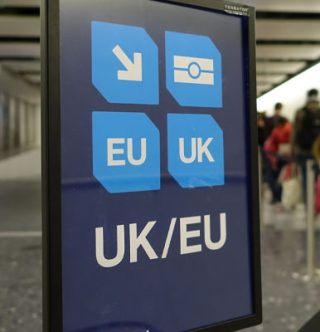No need to prove dependency when you apply for settled status (as long as you have already been granted pre-settled status…)
Written by: Anna Hawkes

In our work as immigration lawyers, we frequently come across situations where the Home Office makes mistakes in their implementation of the law, so it’s important for immigration applicants to be familiar with the rules they are applying under to avoid having their rights breached. The area of immigration law is complex; particularly that of the EU Settlement Scheme.
At Seraphus, we were recently approached by a client with pre-settled status who had applied to the EU Settlement Scheme for settled status, and had received a request from the Home Office to submit further documents to prove that he continued to be dependent on his father. However, re-proving dependency is not a requirement for the type of application he was making. Below, we shed some light on who is required to prove dependency when applying to the EU Settlement Scheme.
Who needs to prove dependency?
Some family members who are dependent on their sponsors from the European Economic Area (EEA) will need to show dependency, where their EEA sponsor has been granted status under the EU Settlement Scheme on the basis of being resident in the UK before 31 December 2020. Those family members are:
- Dependent children 21 or over;
- Dependent parents;
- Dependent relatives who hold a document issued under the EEA Regulations
It is important to note that they will only need to show this dependency the first time they apply to the EU Settlement Scheme.
Take the following example:
An EEA national with settled status has an EEA national child 21 or over who is dependent on them. The child submits an application for pre-settled status under the EU Settlement Scheme while still abroad by using the online system. The child 21 or over would need to show dependency (financial or other type of dependency) when applying for the pre-settled status. Once the status has been granted, they would be able to qualify for settled status after 5 years of residence in the UK, even if they are no longer dependent on their parent.
It is important to bear in mind that, if the dependent family member is a non-EEA national, in most circumstances it may be necessary to first apply for an EUSS family permit in order to receive entry clearance to enter the UK. During the application process, the dependent family member would need to show dependency. Once in the possession of a EUSS family permit, the dependent family member can enter the UK but will then need to apply for pre-settled status under the EU Settlement Scheme in order to remain in the UK. If the EUSS family permit has been granted as a dependent parent, there should be no need to show dependency during the pre-settled status application. This is based on the finding of the Upper Tribunal in the case of Rexhaj [2023] UKUT 161 (IAC) where the Tribunal ruled in favour of a dependent parent who had arrived in the UK with an EUSS family permit but whose application for pre-settled status had subsequently been refused. Although the case concerns a dependent parent, a parallel can be drawn for dependent children over 21.
Appendix EU has been recognised as a particular complex area of law so you should therefore not accept a refusal under the EU Settlement Scheme without getting a second opinion from an immigration lawyer as to the correct implementation of the law.
For our client, the situation was resolved very quickly once we pointed out the mistake to the Home Office. A positive settled status decision came through within two hours of submitting our representations.
If you are unsure about a dependency situation, we suggest you seek advice from an immigration lawyer to help you.
